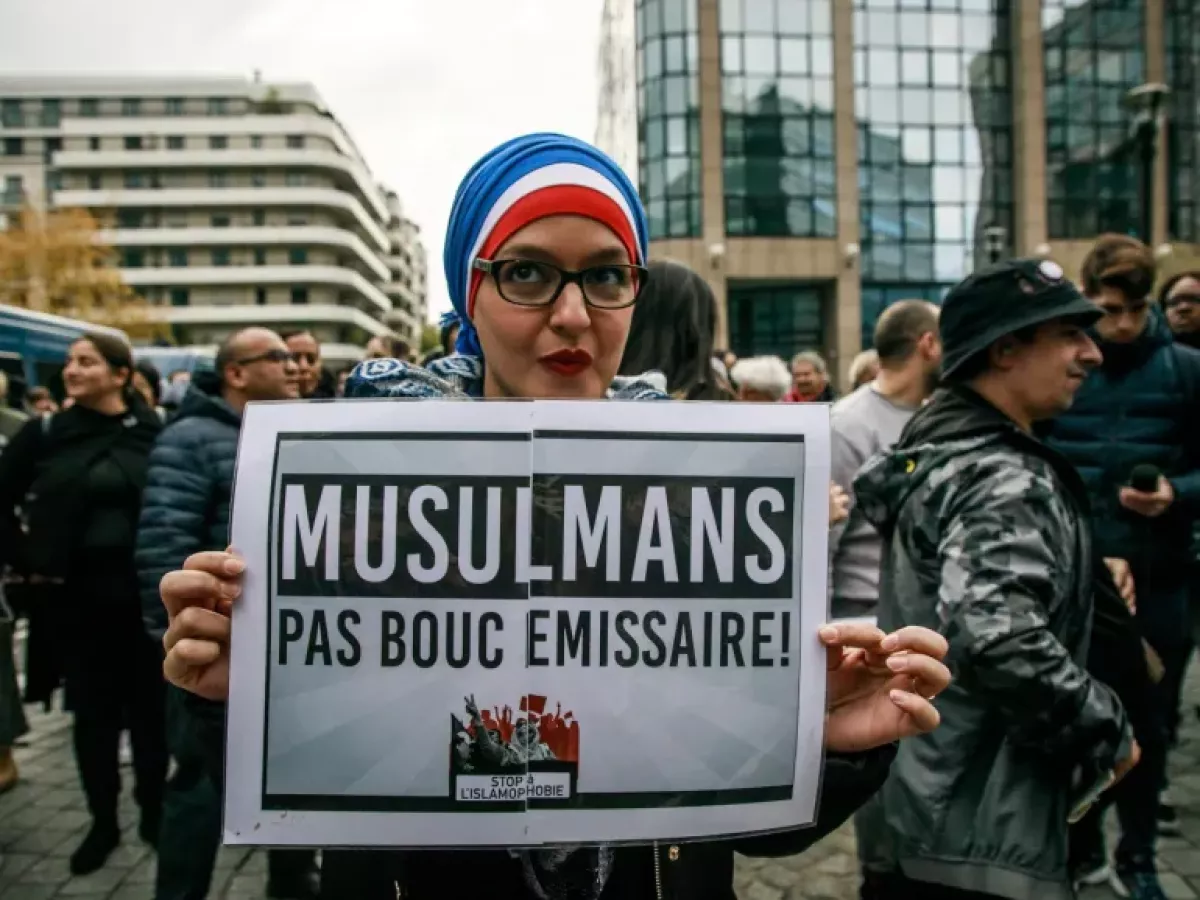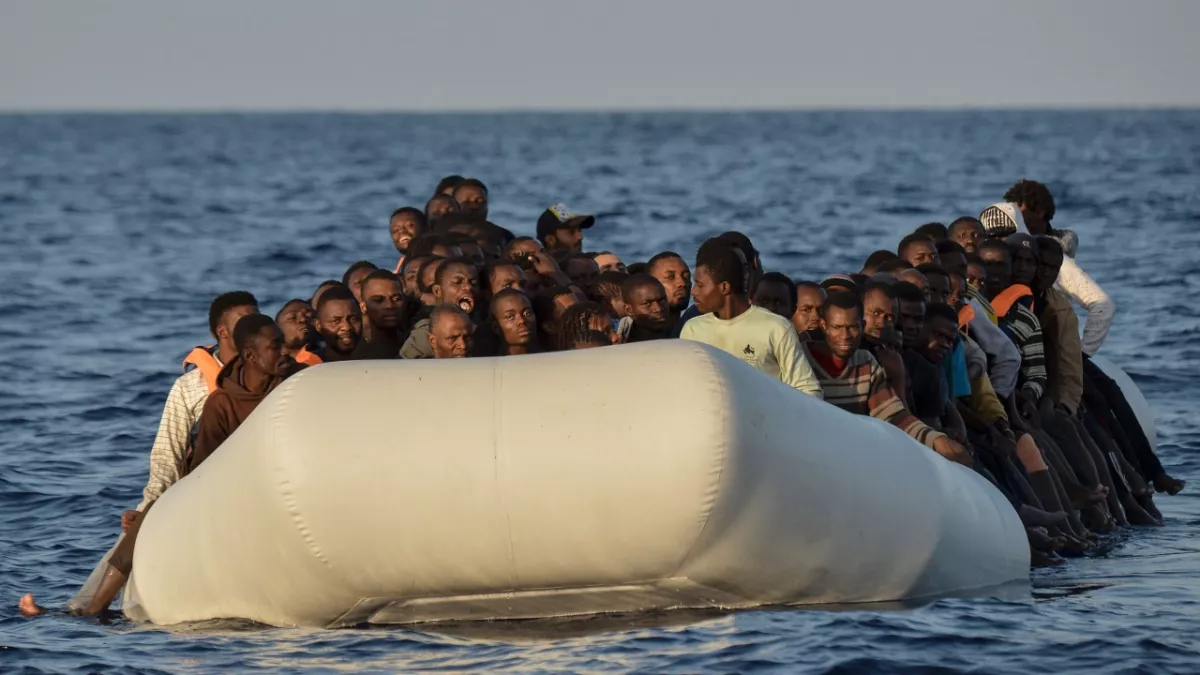Islamophobia sweeps the world Alarming rise of anti-Muslim sentiments
The global situation is evolving in intriguing ways across various fronts. What makes it intriguing? It’s the phenomenon where officials and international organizations appear to unanimously urge certain nations to take specific actions, justifying their proposals, yet the situation remains unchanged. Why should we be surprised, though, when four UN Security Council resolutions demanding the immediate liberation of Azerbaijani territories occupied by Armenia had gone unimplemented for nearly 30 years, along with the silent position of the institutions and countries responsible for upholding international law and its principles?
Currently, a similar situation is unfolding globally regarding the ongoing negative manifestations of anti-Muslim, anti-Turkic, and anti-migrant sentiments. Gradually, these phobias have expanded to include rhetoric and actions against refugees from Ukraine, as noted by the European Commissioner for Human Rights. This raises an important question: the Commissioner has acknowledged the issue, but what comes next?
Let's recall that when the UN General Assembly proclaimed March 15 as the International Day to Combat Islamophobia in 2022, it called for "a global dialogue on the promotion of a culture of tolerance and peace, based on respect for human rights and for the diversity of religions and belief."
Two years later, on March 15, a report by a Group of Independent Experts, published on the UN Human Rights Office's portal, stated that "acts of harassment, intimidation, violence and incitement based on religion or belief have risen to ‘alarming levels’ across the world," particularly concerning Muslims. According to the report's authors, these actions show that "hate entrepreneurs, political parties, armed groups, religious leaders and even State actors around the world, are trampling on respect for diversity of religions and beliefs, discriminating, violating human rights, and overlooking or even attempting to justify these violations."
Simultaneously, the signatories of the document labelled the public burning of the Quran as "deplorable" and called for condemnation of all manifestations of "religious intolerance," emphasizing that " everyone should feel safe and benefit from the equal protection of their human rights, which must be guaranteed by all States."

In the same month, the European Commission (EC) highlighted, in the context of the activities of its coordinator for combating anti-Muslim hatred, that manifestations of hate and the commission of hate crimes against Muslims persist at both the European level and in specific countries. This, in turn, "impacts lives of individual Muslims and people perceived as such, including their dignity, safety, integrity, education, employment opportunities and access to goods and service."
In June 2024, the European Commission against Racism and Intolerance (ECRI) identified anti-Muslim manifestations and the "dire situation of people displaced by war, the rise of antisemitism and anti-Muslim racism as a result of the current Middle East conflict" as key issues facing European societies. The report also noted instances of " public discourse using the threat of a so-called Islamisation of European societies, for political gains." It emphasized that "persons wearing visible religious symbols or traditional clothing were at times represented as being associated with terrorism or extremism," particularly concerning " Muslim schoolgirls in some countries." Moreover, the report cautiously acknowledged that while "the dominant narratives about displaced Ukrainians were those of solidarity and support," there have also been "hate incidents" targeting Ukrainian refugees.
In September 2024, the United Nations High Commissioner for Human Rights reported that in countries such as France, Germany, the United States, Austria, and several others, "there are those politicians, amplified by some media outlets, who scapegoat migrants, refugees, and minorities, as we have seen, for example, around electoral periods." It was noted that these forces pitting one group of the population against another seek to sow discord among them. Historical experience demonstrates just how rhetoric can provoke hate-driven actions.
In other words, the issue has been acknowledged by international bodies, and its causes have largely been described. However, the pressing question remains: what comes next? Will the situation shift from a standstill? Will the anti-Muslim activities of certain individuals, groups, extremist political parties, and even states be publicly condemned? Are there real measures in place to prevent the rise of Islamophobia, anti-Turkic sentiments, or anti-migrant attitudes?
Consider this: according to the International Organization for Migration, 2023 was the deadliest year for migrants in modern history, with over 8,540 fatalities, 60% of whom drowned. Let's reflect on this staggering figure—more than 5,000 people drowned within a single year! Yet, the anti-migrant rhetoric has taken on a new turn.

When it comes to anti-Islamic manifestations, what guarantees do we have that this perspective will be mitigated? As Azerbaijani President Ilham Aliyev recently emphasized, "Islamophobia trends across the world are on the rise. We are witnessing the portrayal of Islam as a potential threat, with doubt, discrimination and open hatred against the Muslims becoming increasingly widespread with each passing day." The head of state highlighted that "Islamophobia has become integrated into the state policies of numerous Western countries that consider themselves democratic," which account for "80 per cent of all the manifestations of Islamophobia that occurred around the world in the last year."
However, given the lack of concrete measures to counter these trends, some analysts suggest that certain forces may be interested in fostering such developments, specifically steering the world toward a clash of civilizations. A clear indicator of this is the anti-Azerbaijani stance adopted by several Western nations in the lead-up to COP29 in Baku. Despite Azerbaijan's determination to bridge the Global North and Global South during its presidency of the event—drawing on its experience with the Non-Aligned Movement—interested parties continue to artificially escalate tensions.
Unfortunately, the actions of those interested in exacerbating the global situation hinder real progress in preventing anti-Islamic or anti-migrant manifestations. In light of this, even foreign experts note that an increasing number of people worldwide are beginning to pay attention to Azerbaijan and several other countries advocating for genuine adherence to the norms and principles of international law by all nations. Official Baku demonstrates a commitment to this approach across various fronts, including advocating for assistance to small island nations and taking concrete steps to combat neocolonialism and promote inter-civilizational peace.
We can only hope that more states will align with this vision of the world, enabling us to overcome further slides into xenophobia and racism.








